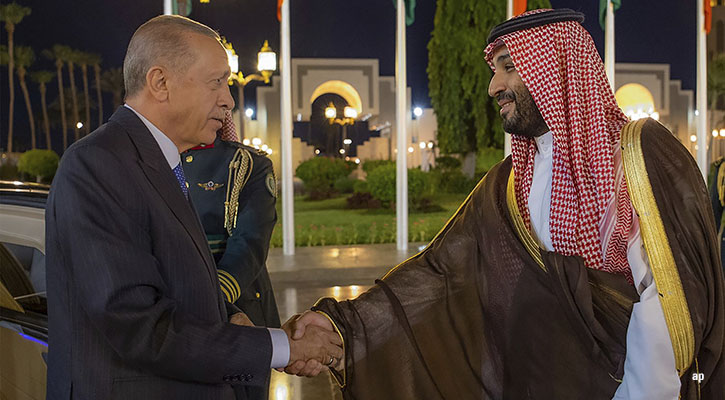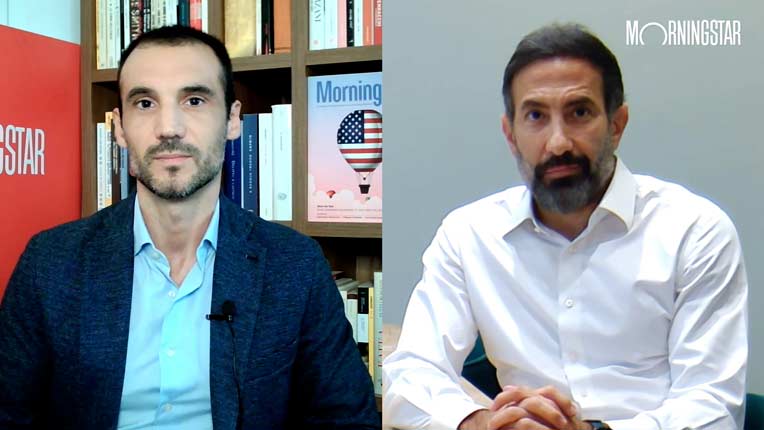
From street food to football, emerging markets have a powerful hold on our imaginations.
It's a trick of globalisation, and maybe a faint echo of the British Empire, but in the UK consumers can pick and choose the nice shiny things from the developing work and adopt them as their own.
Somehow we can keep the two emerging market worldviews separate: enjoy kimchi and Squid Game without worrying about North Korea’s nuclear ambitions, and marvel at Argentina’s football skills at the World Cup while deftly sidestepping the country's enduring economic and political turmoil. This requires some mental gymnastics that are perhaps unhelpful to the logical, consistent approach required of the investor.
A Wave of Optimism
My EM love affair when I visited South-East Asia as an English teacher and backpacker. For someone who hadn't left Europe, touching down in Bangkok on a stormy night was quite the adjustment. Asian cities are busy, exciting, and intimidating to newcomers. Above all they are dynamic (a word I’ll come back to).
There’s a lot going on that makes a newcomer think they’ve entered the future. It’s a lot more fun than looking at renaissance frescoes in Europe. On that trip, I visited China on the cusp of its industrial boom. Two years later the country joined the World Trade Organisation, a turning point for its status as an outward-looking global trading power. This triggered a wave of optimism, along with investment opportunities that are yet to fully make good on their original promises.
Switching continents, a few years later I visited in Brazil on a work trip and in Rio de Janeiro I witnessed the bustling metropolis as a symbol of Latin American dynamism. This was just before the country hosted the World Cup and Olympic Games, two events that surprised the sceptics. As South Africa proved in 2010, a developing country could host a major sporting event.
These early experiences were transformative personally, and changed my early perspectives as novice investors. The twin ideas – dynamic economies and investment returns – were now fused in my head.
Without taking any specific financial advice, I decided to weight my (very modest) ISA portfolio to emerging markets way beyond what experts would recommend. I read a lot around the subject, and had some early success with funds like Aberdeen Emerging Markets, which had an amazing run in the early part of the new century.
ISAs, Murder and War
Seeking even more exciting returns, I then discovered frontier markets, which promise an even more dynamic experience than their EM counterparts (we explain the difference between the two in this article).
Saudi Arabia, a frontier market, joined the MSCI EM index in two stages in 2019 and Saudi Aramco floated at the end of the year. It's since turned the world of elite sport upside down. For me, frontier markets as a whole have so far been disappointing. But that's just investing.
From a political and human rights perspective, frontier markets have been even more disappointing. As the murder of journalist Jamal Khashoggi at the Saudi embassy in 2018 shows, you can't separate the money from the morals. Until Russia’s invasion of Ukraine last year, EM managers praised the country’s central bank and the soundness of its financial sector.
These are stark reminders of the occasional complacency of the globalist investor mindset. The west's misreading of Russia's intentions will provide case studies in the improper pricing of political risk by financial markets. My colleague Tom Lauricella looked at this in his article "Why Autocracy is a Bad Investment".
Clearly there is a lot going on in the world beyond Europe's borders. Some of it is exciting and innovative – witness Taiwan and Korea’s transformation in the last few decades – but by their very nature developing countries are more exposed to climate change, bad leaders, pandemics, war, terrorism, famine and migration crises.
In the West we have a dual approach to developing countries: we fret over this big list of bad stuff, and consider military intervention and aid programmes in response. But the media also looks for an exciting investor story; in 2011 The Economist led with "Africa Rising" and in 2012 Time followed up with the same headline, describing Africa as the "world’s next economic powerhouse".
Lesson Learned
International money shifts restlessly in search of alpha in unexpected places. This continual money flow tends to mean emerging and frontier markets have become more correlated with the developed world. When investors embrace risk, these markets do well, but then retreat when sentiment sours. As the pandemic showed, developing countries were hardly a safe haven when global markets tanked.
Investors like me rarely have the insight or market timing to spot early opportunities in far flung places. For Americans, the home turf has been hard to beat, with the S&P 500 up nearly 300% since 2010. Much has been written about the US’s decline and the rise of the "Asian century" and these themes may continue to play out in the coming decades. In the future, I’ll worry less about geopolitical shifts, indulge in less wishful thinking and concentrate on building a portfolio that doesn’t try to "pick the winners" by region.





























